TERRITORIES
Development of cross-border transport under the Grand Est CPER
January 2024The 2023-2027 State-Region Plan Contract (CPER) for the Grand Est region provides for more than €2.1 billion in funding for its mobility component.

The 2023-2027 State-Region Plan Contract (CPER) for the Grand Est region provides for more than €2.1 billion in funding for its mobility component.
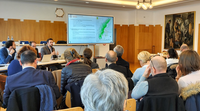
The Commissariat à l'aménagement du Massif du Jura (Jura Massif Planning Commission) has joined forces with the MOT to carry out a cross-border study to take better account of the Franco-Swiss nature of the Jura mountains.

MOT president Christian Dupessey, mayor of Annemasse, reflects on the issue of housing in border areas, following Minister Stanislas Guerini's announcement of a cost-of-living allowance for public servants affected by the real estate pressures associated with Switzerland's proximity. Read his editorial!

President Emmanuel Macron's state visit to Switzerland on November 15th and 16th, 2023, at the invitation of the Swiss Federal Council, put the spotlight on cross-border issues.
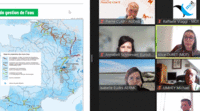
On October 17th, 2023, the MOT network's "Cross-border ecological transition" working group held its 5th meeting. This was an opportunity to investigate issues linked to cross-border management of water resources in the context of climate change.
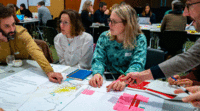
In 2022, the Metropolitan Pole of the French Genevois, along with several of its partners in the Greater Geneva area, committed to developing a cross-border territorial vision.
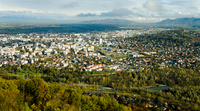
Switzerland employs over 180,000 French cross-border commuters. Salaries are among the highest in Europe. This high level of attractiveness is having a major impact on the French side of the border, in areas such as Pays de Gex in Ain and Annemasse in Haute-Savoie, where salaries cannot keep up: high living costs, strong pressure on property prices, job vacancies in the public sector, etc. The consequences - which are not new - are numerous and complicated to resolve.

At the "Salon du Frontalier", organized by the Groupement transfrontalier européen (GTE), a round-table discussion on access to medical care in border areas led to lively exchanges between elected representatives and experts from both sides of the Franco-Swiss border.
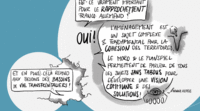
In border areas, living and employment areas are closely intertwined. Differences between planning tools and the organisation of the relevant authorities can hamper integrated regional development. These issues were at the heart of "MORO," a Franco-German spatial planning pilot project. In order to report on the results of this project, the ANCT and the MOT are organising a webinar on 1 December entitled "How to move forward with spatial planning in border areas".

As part of the Interreg Titan-E project (Trinational Innovation and Technology Advanced Networks of Enterprises), ADEUS has produced a dynamic map of health technologies in the Upper Rhine.

France has signed the agreement that maintains the possibility for cross-border workers to work remotely for up to 50% of their working time, announced Olivier Dussopt, Minister for Labour, Employment and Integration, in a press release dated June 30th.

In 2023, the Jura Mountains Development Commission (Commissariat à l'aménagement du Massif du Jura), which is responsible for defining the objectives and actions needed for the development, planning and protection of the mountain range, undertook a cross-border study.
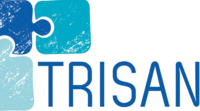
Initiated in December 2019, the TRISAN project "Trinational action plan for cross-border healthcare in the Upper Rhine", led by the Euro-Institute, came to an end on May 31st, 2023.
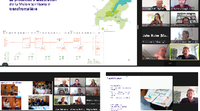
On May 2nd, 2023, the 4th meeting of the "Cross-border ecological transition" working group of the MOT network, which brought together about thirty participants around the question: "how to better involve citizens in the ecological transition of cross-border territories?", took place.
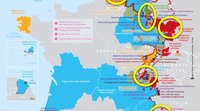
The MOT, supported by sixteen partners of its network, initiated a "cross-border living areas experiment" at the end of 2022.
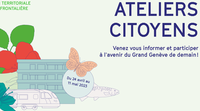
How to live and move in the Greater Geneva of tomorrow? To answer this question, the Canton of Geneva, the Metropolitan Pole of the French Genevois and the Nyon Region are inviting residents to question the territorial development of the cross-border conurbation during eight citizen workshops to be held from April 24th to May 11th.

With more than 200,000 border workers, the Grand Est region is a laboratory for European mobility. As a member of the MOT network, "Frontaliers Grand Est" accompanies these numerous border workers on a daily basis. Julien Dauer helps us better understand the challenges they face.
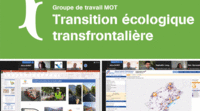
On Friday, March 17th, 2023 the 3rd meeting of the MOT working group "Cross-border ecological transition" was held on the theme of decarbonizing cross-border mobility. The exchanges were organized in two parts.
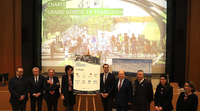
On January 26th, 2023, the eight partners* of Greater Geneva signed a "Greater Geneva in transition" charter, agreeing on the ecological transition issues for the cross-border conurbation.

Mountain areas are particularly exposed to climate change: the mutations of ecosystems and their consequences on human activities develop more quickly and have stronger impacts than in plains.

125 cross-border projects were officially approved at the plenary session of the Collectivité Européenne d'Alsace (CEA) held on December 8th. The topic of energy took center stage!

After many months of negotiations, Switzerland and France have finally reached an agreement on the taxation of cross-border telework, an issue that concerns hundreds of thousands of workers.
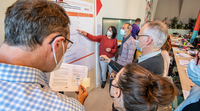
On December 14th, 2022, the closing conference of the first Franco-German spatial planning pilot project (MORO) was held in Strasbourg, with Jean Peyrony, director general of the MOT, and other experts sharing their knowledge at several round tables.
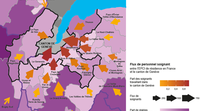
The Greater Geneva cross-border statistical observatory has published a study highlighting the attraction of Switzerland for healthcare personnel and its consequences in terms of human resources for neighbouring French hospitals.